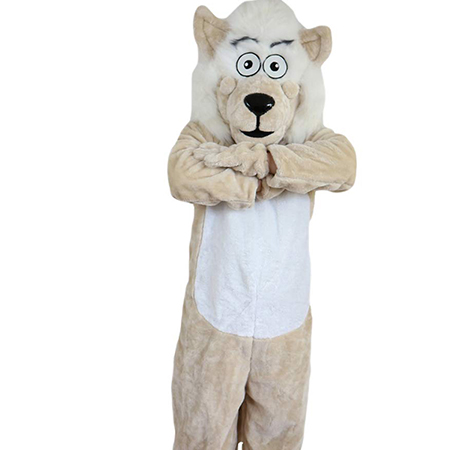Lion mascot costumes have long held a big vicinity in human lifestyle, symbolizing energy, courage, and majesty. The dual emotions of fear and fascination they evoke can be traced lower back to historic times and are deeply rooted in our psychology. this article delves into the difficult layers of these emotions, exploring why lion mascot costumes have such a profound impact on people.
one of the number one reasons for the concern related to lion mascot costumes is rooted in evolution. In prehistoric instances, lions have been one of the few apex predators that human beings encountered regularly. As a end result, an ingrained instinctual response of fear became advanced as a survival mechanism. Even today, this primal reaction stays, inflicting people to revel in heightened tension or apprehension when confronted with lion mascot costumes.
but, fear alone does not account for the fascination many human beings sense toward those costumes. The attraction of lion mascot costumes can be attributed to their symbolic power. Lions are frequently visible as kings of the animal country, representing dominance and authority. This association translates right into a fascinating draw for lots, making lion mascot costumes a popular choice at sports activities activities, parades, and different public gatherings. They exude an air of grandeur and command admire and interest, which can be each inspiring and intimidating.
additionally, lion mascot costumes function effective cultural icons. across various civilizations, lions had been revered and mythologized. From Hercules’ Nemean Lion to the Egyptian Sphinx, these majestic creatures function prominently in folklore and mythology. This rich cultural backdrop enhances the intrigue surrounding lion mascot costumes, imbuing them with a feel of historic importance and mystique. humans are certainly drawn to symbols that bring deep-rooted meanings and memories.
any other layer of fascination comes from the visual and sensory impact of lion mascot costumes. The vibrant manes, piercing eyes, and enforcing presence create a hanging photograph that captures the creativeness. For children, those costumes frequently represent journey and excitement, fueling their interest and wonder. For adults, the nostalgic connection to formative years reminiscences and the sheer spectacle of a nicely-designed lion mascot can evoke a experience of joy and playfulness.

Social psychology also plays a role in how lion mascot costumes are perceived. while people see others reacting with awe or pleasure to a lion mascot, it can have an impact on their own feelings. This phenomenon, called social evidence, means that gazing the enthusiasm of a crowd can heighten man or woman feelings, leading to a collective experience of fascination or maybe fear. activities like mascot appearances at sports games often increase this impact, creating an electric ecosystem charged with emotion.
furthermore, the duality of fear and fascination reflects a broader mental concept known as ambivalence. human beings frequently revel in combined feelings towards the identical item or concept. Lion mascot costumes flawlessly encompass this ambivalence, combining factors that elicit each fear (their fierce look) and fascination (their regal demeanor). This complex emotional response makes them specially memorable and impactful.
In conclusion, the psychology at the back of the worry and fascination with lion mascot costumes is multifaceted, encompassing evolutionary instincts, symbolic power, cultural importance, visual enchantment, social have an impact on, and ambivalent emotions. those factors intertwine to create a compelling phenomenon that continues to captivate and inspire people around the world. whether or not encountered at a sporting event, a parade, or a company characteristic, lion mascot costumes continue to be a effective image that resonates deeply within the human psyche.
